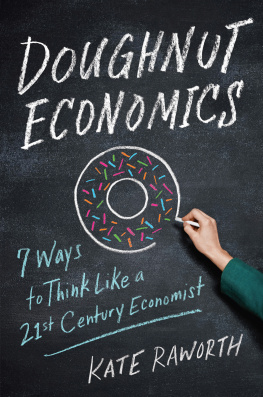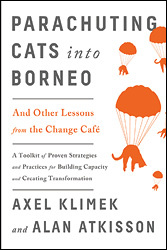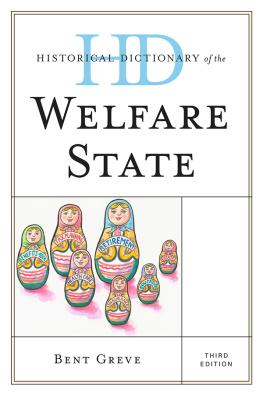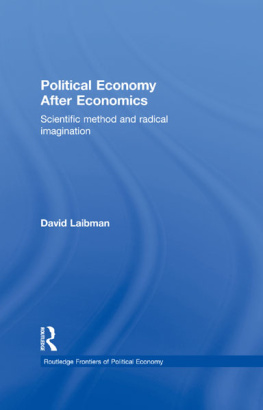Praise for Doughnut Economics
I read this book with the excitement that the people of his day must have read John Maynard Keyness General Theory . It is brilliant, thrilling, and revolutionary. Drawing on a deep well of learning, wisdom, and deep thinking, Kate Raworth has comprehensively reframed and redrawn economics. It is entirely accessible, even for people with no knowledge of the subject. I believe that Doughnut Economics will change the world. George Monbiot , author; columnist at The Guardian
Can anyone seriously suppose that todays economic orthodoxies are going to bring the world back from the brink of chaos? We need to fundamentally rethink the way we create and distribute wealth, and Kate Raworths Doughnut Economics provides an inspiring primer as to how we must now set about that challenge. I hope it ushers in a period of intense debate about the kind of economy we now so urgently need. Jonathon Porritt , author of The World We Made; founding director, Forum for the Future
This is truly the book weve all been waiting for. Kate Raworth provides the antidote to neoliberal economics with her radical and ambitious vision of an economy in service to life. Given the current state of the world, we need Doughnut Economics now more than ever. L. Hunter Lovins , president and founder, Natural Capitalism Solutions
What if it were possible to live well without trashing the planet? Doughnut Economics succinctly captures this tantalising possibility and takes up its challenge. Brimming with creativity, Raworth reclaims economics from the dust of academia and puts it to the service of a better world.
Tim Jackson , author of Prosperity without Growth
Not long ago, well-known development economist Kate Raworths Doughnut graphic became an overnight sensation. Now this marvelous book clearly and succinctly explains her re-envisioning of the economy. On a bookshelf crowded with attempts to reframe economic thinking and the way forward, this book stands outbrilliantly.
Juliet Schor , author of Plentitude
Economics rightly is under the microscope. Kate Raworths insightful Doughnut is what every budding economist should see when they first peer down the lens.
John Fullerton , founder and president, Capital Institute
Copyright 2017 by Kate Raworth
All rights reserved.
No part of this book may be transmitted or reproduced in any form by any means without permission in writing from the publisher.
Editor: Joni Praded
Project Manager: Patricia Stone
Proofreader: Angela Boyle
Indexer: Linda Hallinger
Designer: Melissa Jacobson
Page Composition: Abrah Griggs
Printed in the United States of America.
First printing February, 2017.
10 9 8 7 6 5 4 3 2 117 18 19 20 21
Our Commitment to Green Publishing
Chelsea Green sees publishing as a tool for cultural change and ecological stewardship. We strive to align our book manufacturing practices with our editorial mission and to reduce the impact of our business enterprise in the environment. We print our books and catalogs on chlorine-free recycled paper, using vegetable-based inks whenever possible. This book may cost slightly more because it was printed on paper that contains recycled fiber, and we hope youll agree that its worth it. Chelsea Green is a member of the Green Press Initiative ( www.greenpressinitiative.org ), a nonprofit coalition of publishers, manufacturers, and authors working to protect the worlds endangered forests and conserve natural resources. Doughnut Economics was printed on paper supplied by Thomson-Shore that contains 100% postconsumer recycled fiber.
Library of Congress Cataloging-in-Publication Data is available upon request.
Chelsea Green Publishing
85 North Main Street, Suite 120
White River Junction, VT 05001
(802) 295-6300
www.chelseagreen.com
The most powerful tool in economics is not money, nor even algebra.
It is a pencil. Because with a pencil you can redraw the world.
CONTENTS
WHO WANTS TO BE AN ECONOMIST?
In October 2008, Yuan Yang arrived at Oxford University to study economics. Born in China and raised in Yorkshire, she had the outlook of a global citizen: passionate about current affairs, concerned about the future, and determined to make a difference in the world. And she believed that becoming an economist was the best way to equip herself to make that difference. She was eager, you could say, to become just the kind of economist that the twenty-first century needs.
But Yuan soon got frustrated. She found the theoryand the maths used to prove itabsurdly narrow in its assumptions. And since she began her studies just as the global financial system was heading into free fall, she could not help but notice it, even if her university syllabus didnt. The crash was a wake-up call, she recounted. On the one hand we were being taught as if the financial system was not an important part of the economy. And on the other hand, its markets were clearly wreaking havoc, so we asked, Why is there this disconnect? It was a disconnect, she realised, that ran far beyond the financial sector, visible in the gulf between the preoccupations of mainstream economic theory and growing real-world crises such as global inequality and climate change.
When she put her questions to her professors, they assured her that insight would come at the next level of study. So she enrolled for the next levela Masters degree at the prestigious London School of Economicsand waited for that insight to come. Instead, the abstract theories intensified, the equations multiplied, and Yuan grew more dissatisfied. But with exams on the horizon, she faced a choice. At some point, she told me, I realised that I just had to master this material, rather than trying to question everything. And I think thats a sad moment to have as a student.
Many students coming to this realisation would have either walked away from economics, or swallowed its theories whole and built a lucrative career out of their qualifications. Not Yuan. She set out to find like-minded student rebels in universities worldwide and quickly discovered that, since the millennium, a growing number had publicly started to question the narrow theoretical framework that they were being taught. In 2000, economics students in Paris sent an open letter to their professors, rejecting the dogmatic teaching of mainstream theory. We wish to escape from imaginary worlds! they wrote, Call to teachers: wake up before it is too late!
When the financial crisis hit, it galvanised student dissent worldwide. It also spurred Yuan and her fellow rebels to launch a global network connecting over 80 student groups in more than 30 countriesfrom India and the United States to Germany and Peruin their demand for economics to catch up with the current generation, the century we are in, and the challenges ahead. It is not only the world economy that is in crisis, they declared in an open letter in 2014:
The teaching of economics is in crisis too, and this crisis has consequences far beyond the university walls. What is taught shapes the minds of the next generation of policymakers, and therefore shapes the societies we live in... We are dissatisfied with the dramatic narrowing of the curriculum that has taken place over the last couple of decades... It limits our ability to contend with the multidimensional challenges of the 21st centuryfrom financial stability, to food security and climate change.
The more radical among these student protestors have been targeting highbrow conferences with their counter-cultural critiques. In January 2015, as the American Economic Associations annual meeting got under way in Bostons Sheraton Hotel, students from the Kick It Over movement plastered accusatory posters in the hotels corridors, elevators and toilets, projected giant subversive messages on to the conference centres street facade, and stunned the incredulous conference-goers by occupying their sedate panel discussions and hijacking question time.









